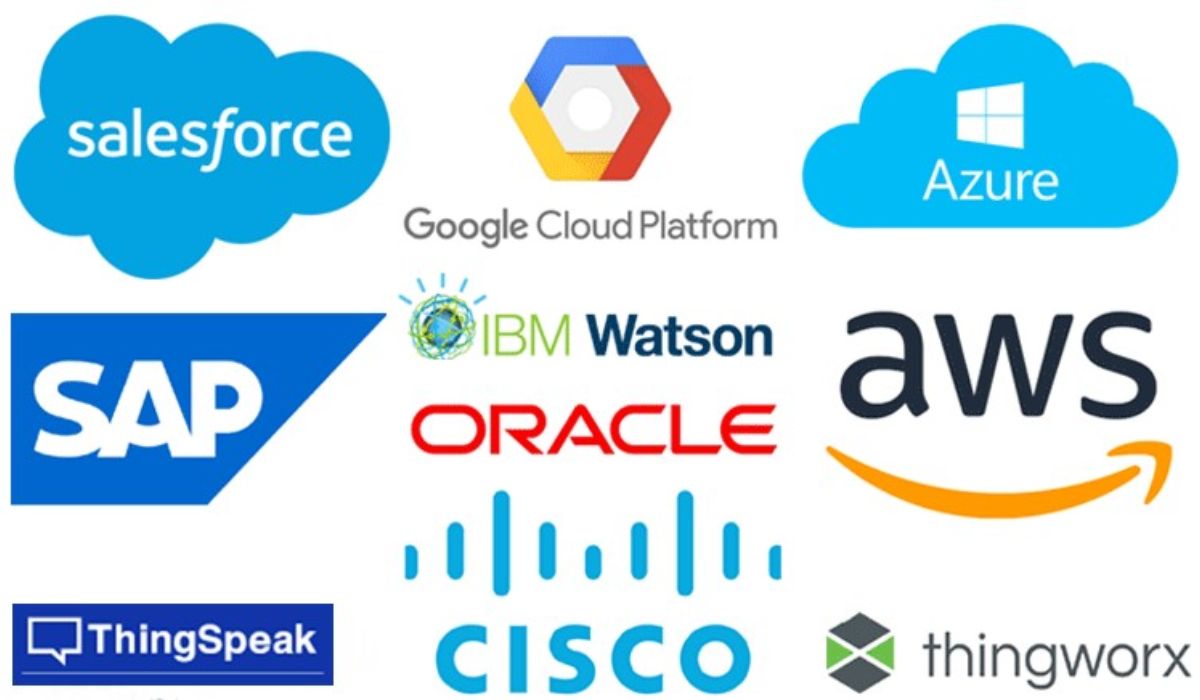Comparison of Cloud Computing Platforms in 2024: In today’s digital age, cloud computing platforms have revolutionized the way businesses and individuals manage data, applications, and services. As we navigate through 2024, several leading cloud computing platforms continue to dominate the market, each offering unique features and capabilities tailored to diverse user needs.
Comparison of Cloud Computing Platforms in 2024
This article explores and compares some of the top cloud computing platforms available this year, helping you understand their strengths, weaknesses, and suitability for various use cases.
1. Amazon Web Services (AWS)
Amazon Web Services, commonly known as AWS, remains a powerhouse in the cloud computing industry, providing a vast array of services and solutions. Launched by Amazon in 2006, AWS offers scalability, flexibility, and robust security features, making it a top choice for enterprises and startups alike.
Strengths of AWS:
- Comprehensive Service Portfolio: AWS offers over 200 fully-featured services, including computing power, storage solutions, databases, machine learning, and more.
- Global Reach: With data centers in multiple regions worldwide, AWS ensures low latency and high availability for its services.
- Ecosystem and Integration: AWS integrates seamlessly with various third-party tools and services, providing extensive flexibility and customization options for users.
Weaknesses of AWS:
- Complex Pricing Structure: AWS’s pricing can be complex to navigate, with multiple factors influencing costs such as usage, region, and service type.
- Learning Curve: Due to its extensive feature set, AWS may have a steeper learning curve for beginners or smaller organizations without dedicated cloud expertise.
2. Microsoft Azure
Microsoft Azure has rapidly gained popularity as a cloud computing platform, leveraging Microsoft’s extensive enterprise software background and global presence. Azure offers a robust set of services designed for building, deploying, and managing applications through Microsoft’s data centers.
Strengths of Azure:
- Integration with Microsoft Products: Azure seamlessly integrates with Microsoft’s ecosystem, including Windows Server, Active Directory, and Office 365, providing familiarity and ease of use for existing Microsoft customers.
- Hybrid Capabilities: Azure offers strong hybrid cloud capabilities, allowing organizations to seamlessly integrate their on-premises infrastructure with Azure services.
- AI and Machine Learning: Azure provides powerful AI and machine learning capabilities through services like Azure Machine Learning and Cognitive Services.
Weaknesses of Azure:
- Documentation and Support: Some users have reported challenges with Azure’s documentation and support compared to other platforms like AWS.
- Complexity in Pricing: Similar to AWS, Azure’s pricing can be complex, and understanding cost implications upfront may require careful planning and monitoring.
3. Google Cloud Platform (GCP)
Google Cloud Platform, or GCP, is Google’s cloud computing offering, known for its performance, innovation, and strong data analytics capabilities. GCP provides a range of services for computing, storage, machine learning, and data management, backed by Google’s global infrastructure.
Strengths of GCP:
- Data Analytics and Machine Learning: GCP excels in data analytics and AI/ML capabilities, leveraging Google’s expertise in these areas with services like BigQuery and TensorFlow.
- Global Network Infrastructure: Google’s global network infrastructure ensures high performance and low latency for its cloud services.
- Container Orchestration: GCP’s Kubernetes Engine is highly regarded for managing containerized applications at scale, offering robust orchestration and management capabilities.
Weaknesses of GCP:
- Market Positioning: GCP, despite its technological prowess, currently holds a smaller market share compared to AWS and Azure, which may affect adoption rates and ecosystem maturity.
- Customer Support: Some users have expressed concerns over the responsiveness of GCP’s customer support compared to competitors.
4. IBM Cloud
IBM Cloud is IBM’s cloud computing platform, offering a suite of cloud services that cater to enterprise-level clients with a focus on security, hybrid cloud, and AI-driven solutions. IBM Cloud leverages IBM’s decades of experience in enterprise computing and provides services for computing, data storage, AI, and blockchain.
Strengths of IBM Cloud:
- Enterprise Focus: IBM Cloud is designed for enterprise-scale workloads, emphasizing security, compliance, and regulatory requirements.
- Hybrid and Multi-Cloud Capabilities: IBM Cloud supports hybrid cloud deployments, allowing organizations to integrate their on-premises infrastructure with IBM’s public cloud services.
- AI and Blockchain: IBM Cloud offers robust AI and blockchain solutions through services like Watson AI and Blockchain Platform.
Weaknesses of IBM Cloud:
- User Interface and Experience: Some users have reported that IBM Cloud’s user interface and overall user experience may not be as intuitive or user-friendly compared to other leading cloud platforms.
- Market Perception: IBM Cloud faces strong competition from AWS, Azure, and GCP, which may impact its market position and adoption rates in certain regions.
Choosing the Right Cloud Computing Platform
When selecting a cloud computing platform in 2024, consider factors such as:
- Use Case: Evaluate which platform best aligns with your specific use case, whether it’s application development, data analytics, AI/ML, or hybrid cloud solutions.
- Scalability and Performance: Assess each platform’s scalability, performance metrics, and global infrastructure to ensure it meets your organization’s growth and performance requirements.
- Cost Management: Understand the pricing structures of each platform and how they align with your budget and financial forecasting.
- Support and Ecosystem: Consider the support offerings, community resources, and ecosystem of each platform to gauge ongoing support and integration possibilities.
Conclusion
As cloud computing continues to evolve, choosing the right platform in 2024 requires careful consideration of capabilities, support, and alignment with your organization’s goals. AWS, Azure, Google Cloud Platform, and IBM Cloud each offer unique strengths and weaknesses, catering to diverse enterprise needs across industries. By understanding these platforms’ nuances and evaluating them against your specific requirements, you can make an informed decision that drives innovation, efficiency, and growth within your organization’s cloud strategy.
